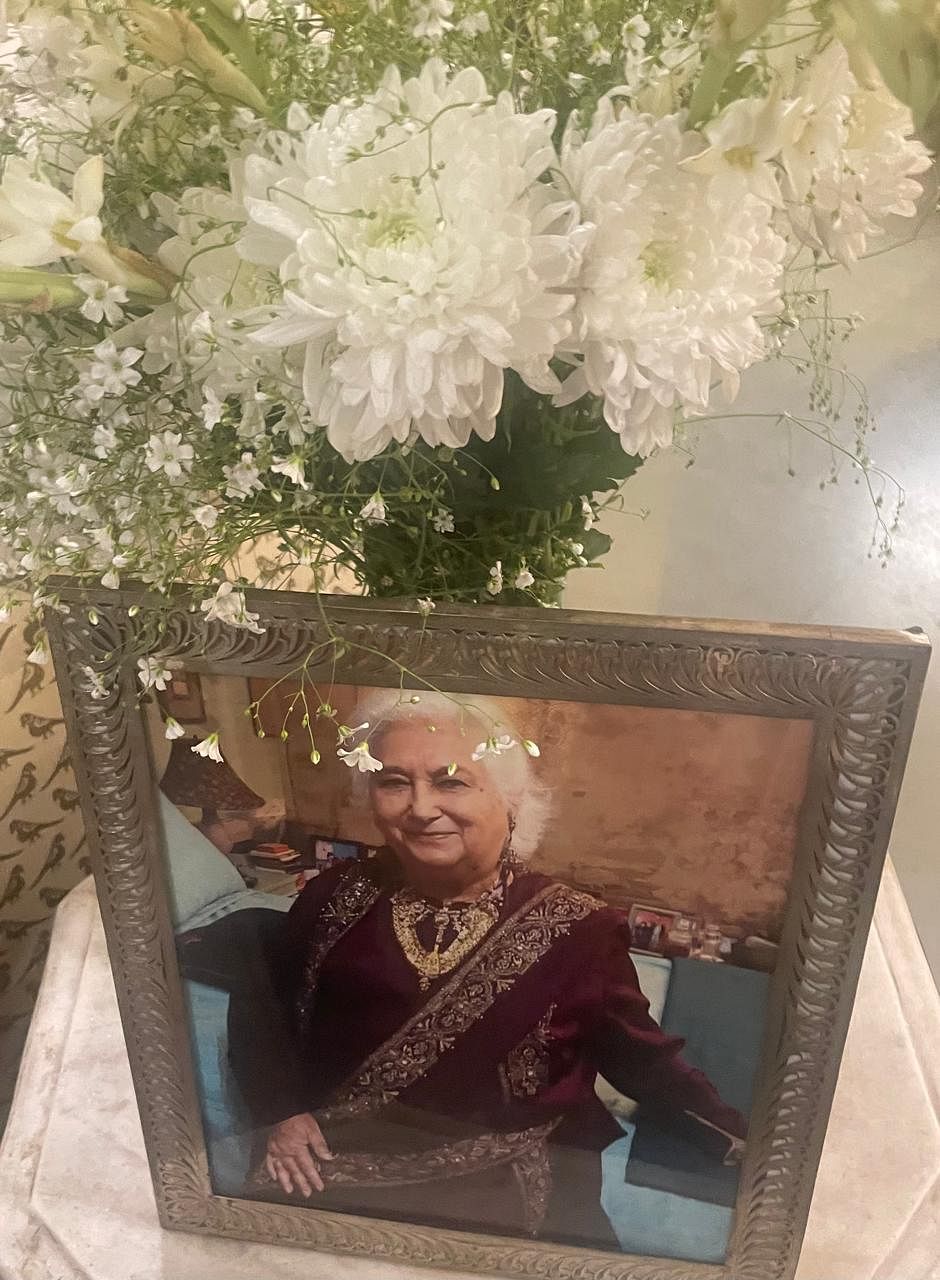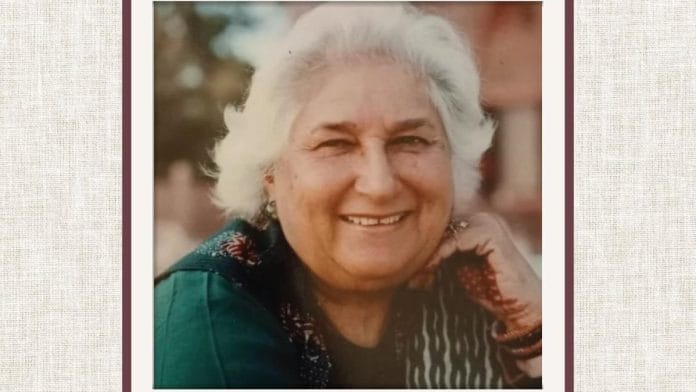He would send me a rose and a note every morning. He waited and waited and wouldn’t take no for an answer,” was how Bimla Nanda Bissell—Bim to almost all who knew her—remembered the assiduous courting for nearly five years by the lanky, sandy-haired Connecticut yankee, for whom she had to vacate her office at Cottage Industries Emporium in 1958. John Bissell had come on a Ford Foundation grant to help design and market Indian textiles for export. “Don’t worry, Bim. He’s a Yank. Won’t last more than three months,” consoled her boss on her eviction.
And so began a love story and formidable partnership that only ended when Bim died, aged 92, at her home in Delhi on Thursday January 9, after a valiantly-borne illness.
John himself, with characteristic laconic humour, summed up the turning point in his life succinctly. “I’m the guy who struck lucky twice. I got the job first; then I got the girl.”
In time Bim and John, John and Bim—the two names were resolutely indivisible—became synonymous with founding Fabindia, the tiny handloom textile export outfit that John started in two rooms adjoining his bedroom in his rented flat in 1960, which today has become, quite literally, a household name with more than 350 retail stores in 127 cities in India and abroad. But equally, the couple was an institution that flourished at the heart of social, political, diplomatic, and philanthropic Delhi for 40 years. As Laila Tyabji, chairperson of Dastkar, an old friend and collaborator, once said, “All doors opened to the Bissells, just as their doors were always open to everyone.”

Their annual Christmas Day breakfast from 8 am onwards began with a spread of fresh scrambled eggs and coffee and grew in magnitude into an enormous garden party that carried on post-lunch with an elaborate menu encompassing Kerala appams and Burmese Khao Shwe. It was a mandatory go-to event that Bim and their two children continued to host for many years after John’s death in 1998.
A woman of indefatigable zest, consummate good taste and compelling individuality, Bim’s style in everything she did, from her dressing, composed of rows of silver bangles and antique necklaces, to the lightness with which she carried her worldly connections, made her cosy maternal manner easy to warm to. She rang me once to ask if we could meet for a cup of tea at the India International Centre. It had to do with an American friend planning a visit to commission an art book. When I asked who the friend was, “Jackie Onassis,” she replied, smiling sweetly.
Too much her own person
Long before phrases like multi-tasking, social influencer and women in the workplace became bandied-about mantras, Bim Bissell was the supreme example who exemplified all. Although married to the man who founded Fabindia, she had no direct role in running the company or its meteoric expansion under her son William.
She was simply too much her own person. Armed with a degree in education from an American university, she started a small, successful pre-school kindergarten called Playhouse in a leafy Lutyens’ Delhi lane. She combined this with successive jobs as an accounts executive in an advertising agency, social secretary to US ambassador Chester Bowles at the time of her marriage to John in 1963, and, later, most notably, as external affairs officer at the World Bank in Delhi for nearly 20 years from 1975 onwards.
It was in this assignment, which included interaction with the capital’s media, that Bim’s skills as catalyst and connector were on shining display. Her approach was subtle, tangential, and often inspired. There was no heavy duty hard sell. She would suggest an idea that might make a good story.
One such was for me to go to Lunkaransar in Bikaner district, Rajasthan, to write about the work of Sanjoy Ghose of the Urmul Trust in water conservation. When I got there after a tiring train and bus journey, Sanjoy said, “I know more about you than you may know. My daughter and your daughter are in the same class—they also have similar sounding names.” His subsequent abduction and killing by militants in Assam in 1997 was a huge blow to us. Bim’s eyes would well up with tears at the mention of Sanjoy’s name.
As a superlative organiser of train journeys to far-flung places, for both business and pleasure, she was much in demand. I recall three: a media trip to politician Vasundhara Raje’s Jhalawar constituency in Rajasthan. A longish tour of World Bank-funded projects in remote parts of Uttar Pradesh, Bengal and Odisha. And perhaps the most delightful—pure sightseeing and laughter and fun—a trip to the magnificent sights of Datia, Orchha, Kota and Bundi organised on behalf of New York Times correspondent Steve Weisman and his wife Elisabeth Bumiller of the Washington Post as a farewell gift for a small group of their Indian friends.
As always, Bim’s attention to detail was meticulous—down to bedding arrangements and meals on board—conducted with a combination of military precision and immense elan.
Bim Bissell was a natural life-enhancer, and together with John, the two made the world a smaller, more connected place—more enjoyable, thought-provoking, rewarding and memorable. Their friend Richard Celeste, present at their wedding in Delhi in 1963, and later US ambassador to India, spoke for many when he said, “It’s hard for me to imagine that a couple like them will ever exist again.”
Sunil Sethi is an author, journalist, and senior columnist. Views are personal.
(Edited by Prashant)






